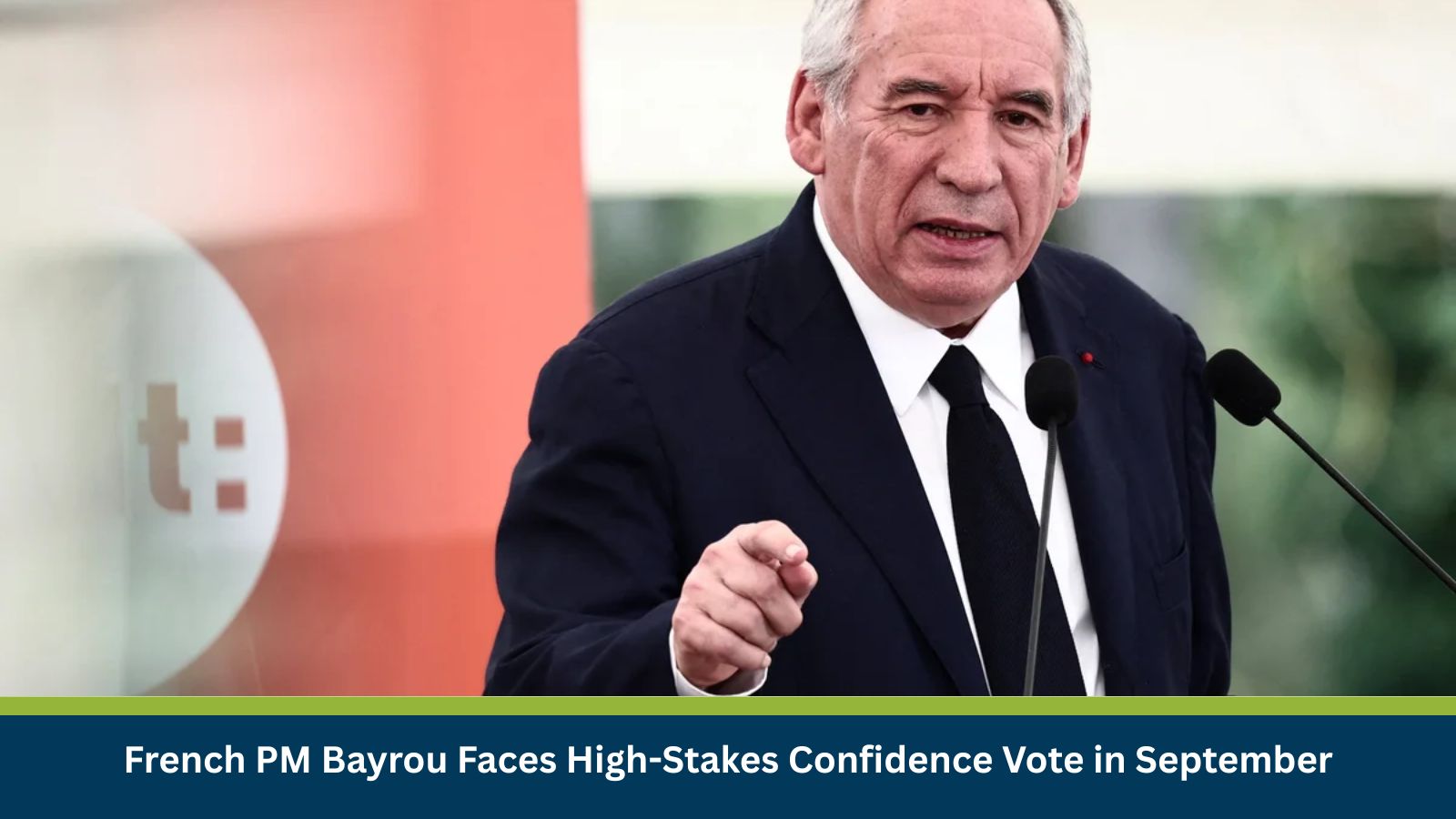France is heading into a decisive political showdown as Prime Minister François Bayrou prepares to face a high-stakes confidence vote on 08 September. At the center of the debate is Bayrou’s controversial €44 billion austerity package, a reform plan that has already provoked fierce opposition from unions, political rivals, and the French public.
Austerity Package at the Heart of the Vote
Bayrou’s economic plan includes eliminating two public holidays, freezing welfare spending, and keeping tax brackets unchanged until 2026. While designed to rein in France’s ballooning deficit, the measures are widely unpopular. The confidence vote will take place just two days before nationwide protests, amplifying political pressure and public discontent.
The Budget Crisis Driving Reform
France’s budget deficit currently stands at 5.8% of GDP, nearly double the European Union’s 3% ceiling. This fiscal gap has made consolidation a priority for the government. However, Bayrou leads a minority administration with limited parliamentary support, making the passage of such controversial reforms especially difficult. Major opposition blocs, including National Rally, France Unbowed, the Greens, and the Socialists, have already pledged to vote against him. A defeat would echo the downfall of former Prime Minister Michel Barnier’s government in late 2024, which collapsed under similar budgetary strains.
What Happens If Bayrou Loses?
If Bayrou’s government fails to secure parliamentary confidence, President Emmanuel Macron will have several options. He could appoint a new prime minister, keep Bayrou on as caretaker, or even dissolve parliament. However, a snap election is seen as unlikely due to deep political fragmentation and recent legislative deadlock. In the short term, a loss would stall policy-making, delay fiscal reforms, and generate uncertainty for markets, institutions, and EU fiscal compliance.
What If He Survives?
Survival would not mark the end of Bayrou’s challenges. Even if the government withstands the vote, the austerity budget will still require separate parliamentary approval later in 2025. His administration would remain politically weakened, facing continuous resistance from opposition parties and likely waves of street protests. In effect, survival may only buy limited time without easing France’s underlying fiscal and political instability.
Outlook: Prolonged Political Fragility
Bayrou’s chances of survival appear slim given the united opposition and his minority standing. A government collapse would heighten institutional instability and prolong fiscal uncertainty, complicating France’s ability to meet EU deficit targets. Analysts believe President Macron will avoid early elections and instead seek a replacement prime minister if Bayrou falls, in order to restore a degree of continuity and stability.
Regardless of the outcome, France appears headed for a prolonged period of political fragility that will complicate both fiscal reforms and broader governance. For markets, businesses, and institutions, this means preparing for ongoing uncertainty and volatility in the months ahead.
Stay Ahead of Threats with datasurfr Predict
MitKat’s datasurfr delivers accurate, real-time, and contextualised data to help organisations respond swiftly to physical, environmental, and cyber threats.
With datasurfr Predict, our AI Agent not only provides context for unfolding events but also analyses vetted historical data to forecast how events are likely to evolve and their potential impact using industry and location-specific probabilistic scores.
Book a free demo today and see how datasurfr Predict can transform your risk preparedness: https://mitkatadvisory.com/why-datasurfr/






